
How do B2B platforms influence Middle Eastern commodity markets?
Bitumen, commonly referred to as asphalt, plays a critical role in the commodity trade dynamics of West Asia and the Middle East. Derived from crude oil, bitumen serves as a key material in road construction and industrial applications. The Middle East, known for its rich petroleum reserves, is a significant player in the global bitumen market. The trade of bitumen and related petroleum products, such as base oil, paraffin, and petroleum coke, is facilitated by advanced B2B marketplaces and supply chain solutions. These platforms help verified exporters and importers connect efficiently, ensuring reliable transactions and optimized logistics. In the engine oil sector, bitumen and base oil are integral as raw materials. The demand for engine oil across West Asia has grown due to the region"s expanding automotive industry. B2B trade platforms provide market insights, regional product listings, and direct communication channels, allowing businesses to explore trends in engine oil trade.
Base oil, a primary component of engine oil, also sees robust demand, with its trade dynamics influenced by factors like pricing, quality, and supplier reliability. Petroleum coke, another derivative, is essential for industries such as cement and power generation. Manufacturers and suppliers across West Asia benefit from trade advertising platforms that boost visibility and networking opportunities. Similarly, paraffin, available in both liquid and solid forms, is widely used in packaging, pharmaceuticals, and cosmetics. Its trade in West Asia is supported by intermediaries specializing in regional logistics and market intelligence. Aritral, an AI-driven B2B trade platform, simplifies these transactions by offering tools like product listing, direct communication, and AI-powered marketing. This digital ecosystem enhances transparency, reduces barriers, and fosters growth in the Middle East commodity market. "
-
 Mohammad Javad Baqeri 3 months ago
Mohammad Javad Baqeri 3 months ago Iran
Aluminum, iron and steel, pickles, dried fruits and groceries, saffron and spices, metal waste, gold, tar, dairy products, jam and honey, copper, silv
Iran
Aluminum, iron and steel, pickles, dried fruits and groceries, saffron and spices, metal waste, gold, tar, dairy products, jam and honey, copper, silv
I\m directly in contact with all those suppliers from Iran`Details
-
 Alireza 2 months ago
Alireza 2 months ago Turkey
Bitumen
Turkey
Bitumen
Various types of bitumenDetails
-

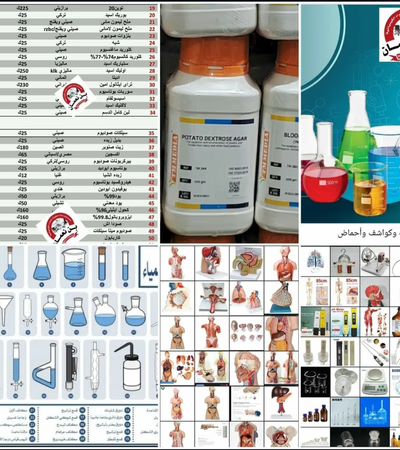 Yemen
Ben Naaman Lamasalizamat Almuamalat Altaalimiyya WalSina'iyya BiAjhizatiha Wamawadiha Alkimiyaiyya
Yemen
Ben Naaman Lamasalizamat Almuamalat Altaalimiyya WalSina'iyya BiAjhizatiha Wamawadiha Alkimiyaiyya
#Everyone has everything related to laboratories: ✅Models in all shapes ✅Tools and experimental devices ✅#Educational_Toys ✅#Glassware ✅#Chemicals ✅#P...Details
-
 Honarmand 2 months ago
Honarmand 2 months ago Iran
Artworks
Iran
Artworks
1. Artworks include a combination of miniature, calligraphy, and painting on leather. 2. Processed yellow and black organic plums, free of chemicals a...Details
-
 Harvesta Ltd 2 months ago
Harvesta Ltd 2 months ago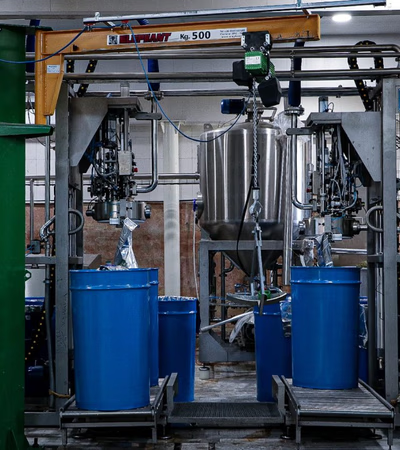 Iraq
Harvestaltd
Iraq
Harvestaltd
Peace be upon you, our products include fruits, vegetables, fish, shrimp, caviar, canned foods, etc.Details
-
 Moslem Ahmadi 2 months ago
Moslem Ahmadi 2 months ago Iran
Export of vegetables from Iran and import of other goods to Iran in barter or cash
Iran
Export of vegetables from Iran and import of other goods to Iran in barter or cash
Hello Our company is an Iranian supplier and extensively imports and exports food products, minerals, industrial and construction materials We are cur...Details
-
 الطريق المُشرِق للتجارة المشتقات النفطية 2 months ago
الطريق المُشرِق للتجارة المشتقات النفطية 2 months ago Iraq
Fuel oil & bitumen & diesel
Iraq
Fuel oil & bitumen & diesel
50/60 bitumenDetails
-
 Karaveli Petrol Urunleri Ltd Sti 13 months ago
Karaveli Petrol Urunleri Ltd Sti 13 months ago Turkey
petroleum products, urea, sulfur, aluminium zinc
Turkey
petroleum products, urea, sulfur, aluminium zinc
petroleum products urea sulfur gasoline diesel crude oil aluminium zinc copperDetails
-
 The World Of Glory 2 months ago
The World Of Glory 2 months ago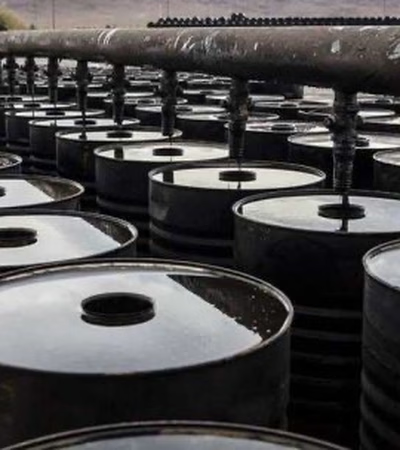 Oman
All types of bitumen, best quality, fast delivery, permanent cooperation
Oman
All types of bitumen, best quality, fast delivery, permanent cooperation
All types of bitumen, best quality Fast delivery, permanent cooperation Speed and quality are our assetDetails
-
 Yasir 2 months ago
Yasir 2 months ago Yemen
Precious Stones
Yemen
Precious Stones
I have relied on GodDetails
-
Exploring Base Oil Trade in the Middle East and West Asia

Base oil, a fundamental raw material in the production of lubricants such as engine oil, holds significant importance in the Middle Eastern and West Asian commodity trade. Base oil serves as the backbone for various products, including bitumen, paraffin, and petroleum coke, making its trade dynamics critical to regional economic activity. In Southwest Asia, the brokerage of base oil thrives due to a robust network of verified exporters and importers facilitated by B2B marketplaces and trade platforms. These platforms enhance supply chain solutions by enabling direct communication between commercial players and promoting regional product listings. The engine oil market in West Asia underscores the increasing demand for high-quality base oil. The trade trends in this region reflect the growing integration of base oil into broader petroleum-based commodities, such as bitumen and asphalt. Bitumen, essential for road construction, and asphalt are heavily traded in the Middle East, aligning with infrastructure development goals. Similarly, petroleum coke (petcoke), another byproduct, is widely used in industrial applications, with key suppliers and manufacturers concentrated in West Asia.
Paraffin, available in liquid and solid forms, plays a pivotal role in the regional market. Derived from crude oil, its trade is expanding due to its versatile applications, ranging from candle production to industrial coatings. The Middle East and West Asia are evolving into hubs for paraffin intermediaries, further bolstered by efficient supply chain frameworks. Aritral, an AI-powered B2B trade platform, offers verified listings, market insights, and brokerage solutions, supporting commercial players in navigating the complexities of international trade for base oil and related commodities. By leveraging such platforms, businesses gain access to new markets, increased visibility, and streamlined operations in the engine oil and base oil sectors.
-
Bitumen and Asphalt Trade Insights in West Asia

Bitumen, commonly referred to as asphalt, plays a critical role in the commodity trade dynamics of West Asia and the Middle East. Derived from crude oil, bitumen serves as a key material in road construction and industrial applications. The Middle East, known for its rich petroleum reserves, is a significant player in the global bitumen market. The trade of bitumen and related petroleum products, such as base oil, paraffin, and petroleum coke, is facilitated by advanced B2B marketplaces and supply chain solutions. These platforms help verified exporters and importers connect efficiently, ensuring reliable transactions and optimized logistics. In the engine oil sector, bitumen and base oil are integral as raw materials. The demand for engine oil across West Asia has grown due to the region"s expanding automotive industry. B2B trade platforms provide market insights, regional product listings, and direct communication channels, allowing businesses to explore trends in engine oil trade.
Base oil, a primary component of engine oil, also sees robust demand, with its trade dynamics influenced by factors like pricing, quality, and supplier reliability. Petroleum coke, another derivative, is essential for industries such as cement and power generation. Manufacturers and suppliers across West Asia benefit from trade advertising platforms that boost visibility and networking opportunities. Similarly, paraffin, available in both liquid and solid forms, is widely used in packaging, pharmaceuticals, and cosmetics. Its trade in West Asia is supported by intermediaries specializing in regional logistics and market intelligence. Aritral, an AI-driven B2B trade platform, simplifies these transactions by offering tools like product listing, direct communication, and AI-powered marketing. This digital ecosystem enhances transparency, reduces barriers, and fosters growth in the Middle East commodity market. "
-
Engine Oil Trade Dynamics in West Asia and Middle East
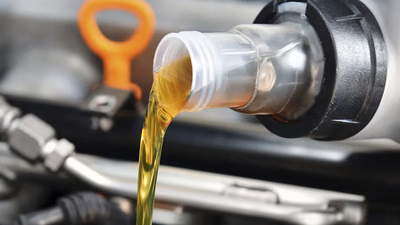
Engine oil, a critical lubricant for automotive and industrial machinery, plays a vital role in ensuring efficient performance and durability. In West Asia and the Middle East, the engine oil market is heavily influenced by regional trade dynamics, with strong ties to the petroleum industry. The trade of base oil—a primary component of engine oil—and its derivatives such as bitumen, paraffin, and petroleum coke, serves as the backbone for many regional import/export activities. West Asia is a hub for engine oil production and distribution, with verified exporters and importers utilizing B2B marketplaces to connect with buyers across Asia. Platforms specializing in commodity trade within the Middle East offer regional product listings and market insights, fostering business networking opportunities. These tools are crucial for understanding the nuances of engine oil quality, pricing, and types, which vary based on viscosity grades and applications in cars, heavy-duty vehicles, and industrial machinery. Base oil, the foundation for manufacturing engine oil, is brokered extensively in Southwest Asia. Key players in the region ensure a steady supply chain for production facilities, with trade advertising platforms promoting transparency and verified transactions.
Similarly, bitumen and petroleum coke markets in West Asia are significant for road construction and industrial energy needs, with competitive pricing influenced by global crude oil trends. Paraffin, another petroleum byproduct, is vital for both solid and liquid applications. Its trade in the Middle East intersects with broader commodity flows, emphasizing the importance of intermediaries who bridge supply-demand gaps. Aritral, an AI-driven B2B platform, simplifies the trade of engine oil and its components, providing services like product listing, AI-powered marketing, and direct communication tools to support global sales. With verified profiles, Aritral fosters trust and efficiency, enabling businesses to capitalize on the robust trade opportunities in West Asia"s oil-based industries. "
-
Paraffin Trade Insights in West Asia and the Middle East
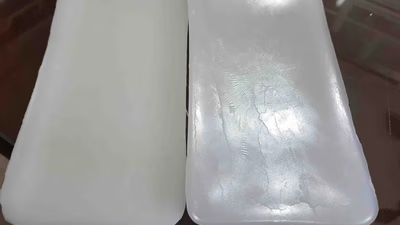
The paraffin trade in West Asia and the Middle East has emerged as a significant commodity market, driven by its diverse applications in industries such as cosmetics, pharmaceuticals, and manufacturing. Paraffin, derived primarily from petroleum, comes in both liquid and solid forms, categorized under types like paraffin wax (HS Code 271290) and paraffin oil (HS Code 271210). West Asia’s extensive petroleum reserves make it a global hub for paraffin production, with verified exporters and importers leveraging regional B2B marketplaces to facilitate trade. Commodity-focused platforms in the Middle East, such as Aritral, have simplified international trade by offering supply chain solutions and verified listings of paraffin products. These platforms enable businesses to access market insights, streamline logistics, and build robust business networks. Liquid paraffin, commonly used in pharmaceuticals, and solid paraffin, prevalent in candle-making and coatings, are highly demanded across Asia. The paraffin market intertwines with other petroleum-based commodities like base oil, bitumen, and petroleum coke. Base oil, a precursor to engine oil, is essential in lubricant production, while bitumen dominates the construction sector.
These interconnected markets benefit from B2B advertising platforms that enhance visibility and trust among regional stakeholders. The rise of AI-driven trade solutions further impacts commodity markets in West Asia, ensuring transparency and efficiency in paraffin and other petroleum derivatives. B2B marketplaces foster direct communication between manufacturers and buyers, promoting high-quality paraffin production and distinguishing premium-grade paraffin from substandard variants. West Asia’s trade landscape continues to evolve, emphasizing the role of verified exporters and importers in shaping global supply chain dynamics. Aritral, as an AI-powered B2B platform, exemplifies how digital tools transform commodity trading in the region, offering services like product listings, marketing insights, and global sales assistance to streamline paraffin and related markets.
-
Petroleum Coke Trade Insights in West Asia

Petroleum coke (Petcoke), a solid carbon-rich material derived from oil refining, plays a vital role in commodity trade across West Asia and the Middle East. The region is a significant producer of petcoke, with its production driven by the abundance of crude oil and advanced refining capacities. Middle Eastern petcoke, also known as petroleum coal, is utilized in industries such as cement, steel, and aluminum, owing to its high calorific value and cost-effectiveness compared to traditional fuels. However, its environmental impact and fluctuating market prices remain challenges. B2B marketplaces in Asia, including platforms like Aritral, are transforming the trade dynamics of petcoke and related commodities such as engine oil, base oil, bitumen, and paraffin. Verified exporters and importers on these platforms provide streamlined supply chain solutions, ensuring reliable and transparent transactions. These trade advertising platforms also offer regional product listings and market insights, enabling businesses to navigate pricing trends and demand fluctuations effectively. The engine oil market, intrinsically linked to base oil, paraffin, and bitumen trade, is similarly impacted by B2B dynamics.
For instance, base oil, a key raw material for engine oil production, sees significant demand in West Asia. Supply chain solutions facilitate its movement across borders, while regional product listings and verified suppliers enhance accessibility. Bitumen and paraffin, essential for construction and industrial applications, also benefit from similar supply chain efficiencies provided by trade platforms. Petroleum coke suppliers in West Asia and petcoke manufacturers in the Middle East are leveraging these platforms to expand their reach. Market insights reveal that West Asia’s production rate of petroleum coke is steadily growing, driven by industrial demand and competitive pricing. As the global commodity trade evolves, businesses must continuously adapt to shifting market dynamics, supported by tools like AI-powered B2B platforms. Aritral offers services such as product listing, direct communication, and AI-powered marketing to enable seamless global trade operations.
-
How was bitumen discovered?

Bitumen has been utilized for thousands of years, with its origins traced back to ancient Mesopotamia and the Indus Valley. Early civilizations recognized its waterproofing properties, using it for sealing boats and buildings. The Egyptians employed bitumen in mummification, while the Greeks referred to it as "asphaltos," a term that evolved into "asphalt. " The Romans advanced asphalt technology, using it extensively in road construction, which allowed their infrastructure to endure heavy traffic and harsh weather. Bitumen"s applications expanded over time, including use in military defenses and architectural projects. In ancient Iran, known as "Mamaton," bitumen played a crucial role in various sectors, including tool making and construction. Although its use declined in Europe during the Middle Ages, it remained significant in the Middle East and Asia. The 19th century saw a revival of asphalt as a construction material with innovations like macadamization by John Louden McAdam.
This laid the groundwork for modern asphalt production, which began in the late 19th century with advancements in refining crude oil. Today, bitumen is essential for global infrastructure projects such as roads and airports, with ongoing developments enhancing its performance. "
-
Types of bitumen
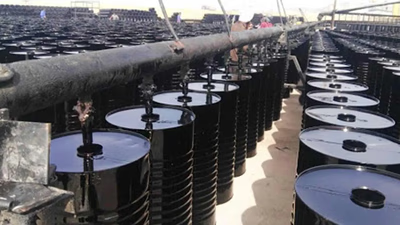
Bitumen is categorized into various types based on its properties and applications. Penetration grade bitumen, such as PG 64-22, PG 70-10, and PG 76-10, is primarily used in road construction due to its hardness and consistency at specific temperatures. Polymer-modified bitumen (PMB) enhances durability by incorporating polymers like SBS or EVA, making it suitable for high-stress environments like airports. Pure bitumen is derived from oil or minerals and can be classified into petroleum bitumen, natural bitumen, tar bitumen, cutback bitumen, emulsion bitumen, oxidized bitumen, and hard bitumen. Each type has unique characteristics; for instance, cutback bitumen is mixed with solvents for easier application at lower temperatures while emulsion bitumen allows for safe handling without heating. Oxidized bitumen offers excellent weather resistance for industrial uses such as roofing. The choice of crude oil in refineries significantly impacts the quality of the final product. Understanding these classifications aids in selecting the appropriate type of bitumen for specific construction and industrial needs.
-
What is bitumen (asphalt)?
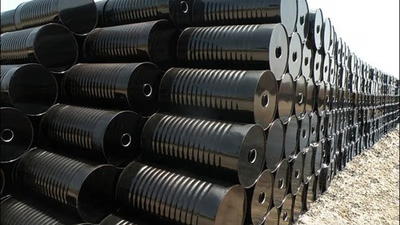
Bitumen, or asphalt, is a viscous material derived from crude oil, primarily used in road construction and waterproofing. Its complex hydrocarbon composition includes asphaltene and Maltin, which influence its properties such as viscosity, adhesion, and flexibility. Bitumen serves as a binder in asphalt concrete, providing durable surfaces for roads and airports. Its resistance to heavy traffic and weather conditions makes it ideal for various applications. Additionally, bitumen is utilized in waterproofing structures to prevent water penetration. Historically significant, bitumen has been used since ancient times for construction and preservation purposes. The material"s characteristics can be modified with additives to enhance performance. The terminology varies globally; in North America, "asphalt" often refers to the mixture used in road construction while "bitumen" denotes the raw material itself. "

















